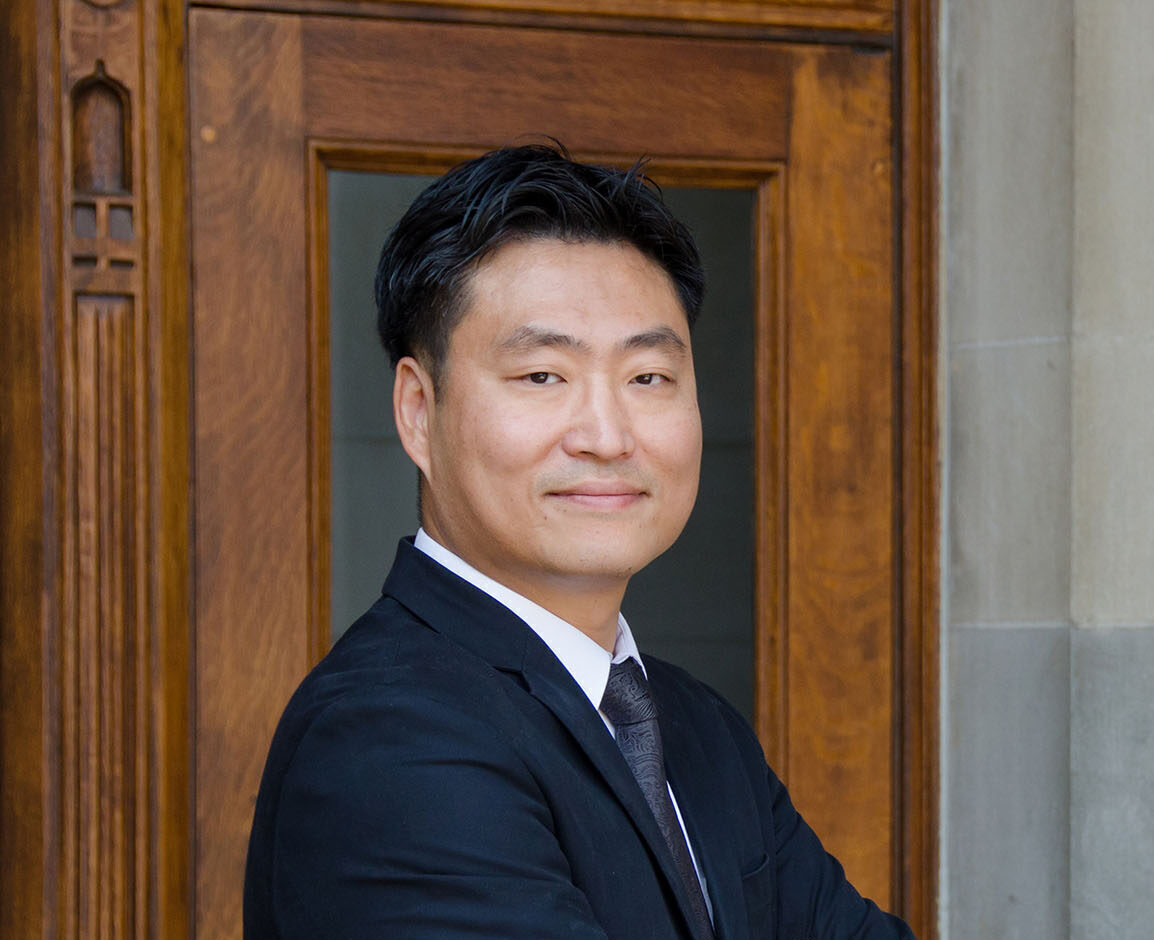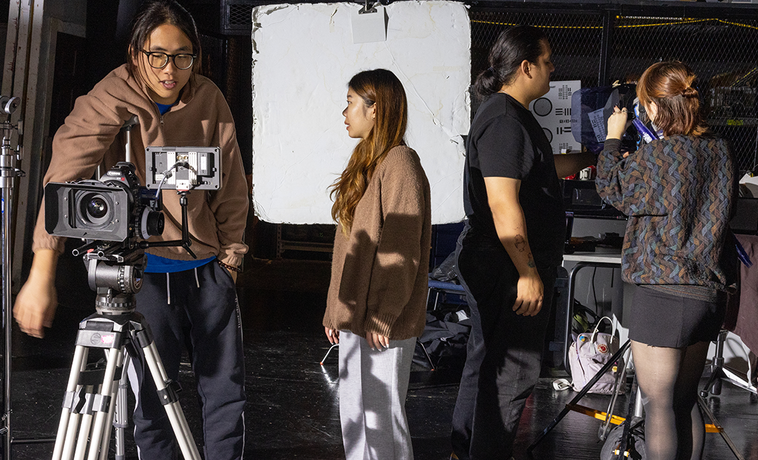
Photo courtesy Indiana University Media School.
Meet COM’s New Chair of Mass Communication, Advertising and Public Relations
Public relations scholar Sung-Un Yang studies the alignment of communication and the public interest
在韩国长大的Sung-Un Yang想成为一名记者。 He kept a scrapbook of newspaper columns and emulated his favorite writers. But he graduated from college in 1998, when his country was in the midst of a financial crisis. Yang decided to head to graduate school in the US rather than enter a poor job market. It was there that his professional life took the turn that has led him to Boston University, where he became COM’s new chair of Mass Communication, Advertising and Public Relations on July 1.
Yang arrived at the University of Maryland as a communication student, and when he met James Grunig, a prominent scholar of public relations, he was captivated by the professor’s theory of two-way symmetrical communication. Grunig posited that the use of communication for conflict resolution and the promotion of mutual respect was more effective for organizations than using communication to persuade or manipulate. The idea of public relations for the public interest appealed to Yang, who when on to earn a master’s degree and PhD under Grunig’s mentorship.
“When organizations have relationships and interests which are mutually beneficial with the public interest, that’s the very best condition for effective communication management,” Yang says. That belief has formed the bedrock of his academic career, which has included stops at the Newhouse School of Public Communications at Syracuse University and, most recently, as the Ralph Winslow Professor at the Indiana University Media School.
His primary research interest is the relationship between organizations and their stakeholder publics. “With advancements in communication technology, it’s a lot easier for brands to manipulate the public, to manipulate information for the sake of the organization,” he says. “But it’s also a lot easier to be a victim of a pseudo-crisis created by members of the public.” To overcome those challenges and pitfalls, he draws from what he learned from Grunig. “The integrity of what we say, but also what we do in terms of action, matters for better relationships.”
Some of Yang’s recent projects include studying CEO activism (Are there benefits to leaders taking controversial stances on social or political issues?) and the expectations that consumers have for companies and organizations to engage in advocacy. One idea driving his research is that as society becomes more polarized and people lose faith in political institutions, they rely more heavily on companies to uphold their ideals. Beyond his research, Yang is the editor-in-chief of the Journal of Public Relations Research.
When Yang arrived at BU, at least one familiar face greeted him. Maria Elizabeth Grabe, once a colleague at Indiana, is COM’s director of Emerging Media Studies and the inaugural Dalton Family Professor at COM. At Indiana, the two partnered on a grant to support the development of academic programs in government communications for Ukrainians.
Yang says he was attracted to BU because of its history in his field—COM offered the first public relations degree in the country—and the legacy of its scholars. He keeps a copy in his office of The Crisis Manager: Facing Risk and Responsibility, a book by Otto Lerbinger, a longtime COM professor and expert on crisis communication, and has been inspired by the work of the previous department chair, Donald Wright.
After spending his career up to this point in public relations research, Yang will step in as chair of COM’s largest department, which spans multiple disciplines and includes large contingents of researchers as well as professors of the practice. He can’t wait to get started. “I’m absolutely thrilled,” he says.
“Sung-Un Yang is a distinguished scholar who really got my attention when we first met by saying that we are now in the era of personal, rather than mass, communication,” says Mariette DiChristina (’86), dean and professor of the practice in journalism. “This era will have many implications for our programs, and I’m excited to learn from Sung-Un.”


